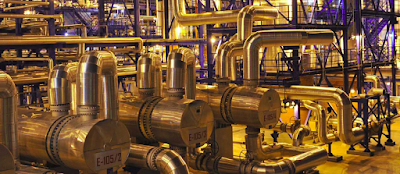A Complete Guide To Teflon Insulators: How They Work And Their Benefits
Teflon Insulators are a relatively new breed of insulators on the market, and they've proven to be very popular amongst homeowners. In this article, we'll discuss what a Teflon Insulator is, how it works, and the benefits it can provide.
What is it?
A Teflon insulator is a type of material used to insulate electrical cables. It is useful when something needs to be waterproof, heat resistant, and not conduct electricity. This is one of the best ways to protect electrical wires from water damage because water can't seep into the cables. Teflon insulators are made in different specifications for varied usage.
How does it work?
Superconductors are materials that conduct electricity without resistance. An electric current in a superconductor will flow forever with no power source. However, in a regular conductor like copper wires, electrons collide with other atoms and lose energy to the material, lost as heat.
A Teflon insulator works by reducing the number of collisions between electrons and atoms. It does this by surrounding the wire with a particular type of insulation. Teflon is an example of an excellent insulator. It allows electrons to pass through it without much resistance, which means that they don't lose their charge and transport between insulation layers.
What are the benefits of using a Teflon insulator?
Teflon Insulators are used to protect the electrical wire from any damage. They are very lightweight and also very easy to install. These electrical insulators are very cost-effective and do not snap or break easily. You can place these Teflon insulators anywhere in your home where you feel there is a chance of the wires being damaged by someone or something.
There are a few reasons why Teflon is used in insulators. First and foremost, it's exceptionally durable and won't dissolve with time or heat. It can withstand temperatures as high as 500°C without breaking down, which is why it's used in many devices that require stable power.
Teflon is also incredibly lightweight and has a very low coefficient of friction. It has a melting point of 327°C, so that it can be used in high-heat applications. Also, it doesn't rust when exposed to water, making it ideal.
Closing thoughts
Teflon insulators are great for keeping your home safe from electrical fires and other problems. If you're interested in getting a quote for new Teflon insulation, please fill out our contact form today! We look forward to hearing from you!



Comments
Post a Comment